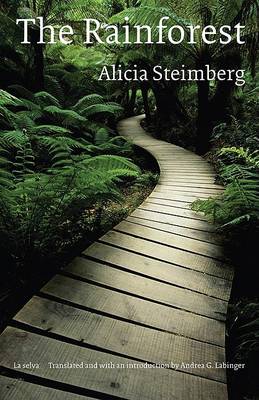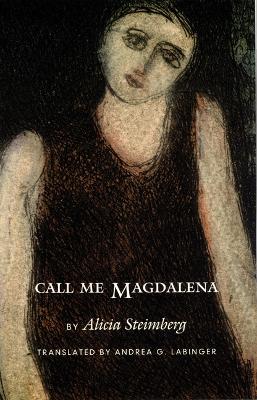Latin American Women Writers
2 total works
For middle-aged Cecilia, the rainforest represents both solace and tenuously controlled danger, as she discovers when she follows the same path each day from her hotel at a Brazilian spa into the surrounding jungle. Although her daily forays are designed to help leave her painful past behind, Cecilia's thoughts return to her deceased husband, her drug-addicted son, and her own place in the world. These thoughts are her only company until the present intrudes once more in the unlikely form of a fellow patient at the spa, a North American man who might represent a second chance. In "The Rainforest", the award-winning novelist, Alicia Steimberg offers the reader new definitions of happiness and mature love - or perhaps simply the reassurance that in life, nothing is ever quite as terrible as one fears or quite as glorious as one remembers. Alicia Steimberg was born in 1933 in Buenos Aires, the descendant of Eastern European Jewish immigrants to Argentina. She received an advanced education and training in English and has worked for many years as a professional translator.
Her own literature has a clear autobiographical component, and she has earned a reputation as one of Argentina's best contemporary writers. In 1992, she was awarded the prestigious Premio Planeta Biblioteca del Sur for her novel "Cuando digo Magdalena", since translated into English and available in the Bison Books edition, "Call Me Magdalena". Andrea G. Labinger is a professor of Spanish and the director of the honors program at the University of La Verne in Southern California. Her many translations include Alicia Steimberg's "Call Me Magdalena" and Carlos Cerda's "An Empty House", also available in a Bison Books edition.
Her own literature has a clear autobiographical component, and she has earned a reputation as one of Argentina's best contemporary writers. In 1992, she was awarded the prestigious Premio Planeta Biblioteca del Sur for her novel "Cuando digo Magdalena", since translated into English and available in the Bison Books edition, "Call Me Magdalena". Andrea G. Labinger is a professor of Spanish and the director of the honors program at the University of La Verne in Southern California. Her many translations include Alicia Steimberg's "Call Me Magdalena" and Carlos Cerda's "An Empty House", also available in a Bison Books edition.
Erotic entanglements, startling revelations, a furtive intruder, even a possible murder? Not at all what the students of Mind Control class envisioned when they gathered on a ranch outside Buenos Aires for a relaxing weekend. But here nothing is quite what it seems, least of all Magdalena herself, who while recounting the weekend's events, changes her name as often as she changes her mind. Within the taut framework of a murder mystery, Alicia Steimberg weaves a tale far more concerned with who-is-it than with whodunit. In what is probably the celebrated author's most interesting and complex novel, Magdalena conducts us through her tortuous childhood as an Argentine Jew and through her doubts about morality and mortality, the existence of God, and the amorphous nature of identity. Animated by Steimberg's lively dialogue and wit, this eccentric tour of some of the more pressing questions about gender, identity, and existence itself is finally as intriguing and suspenseful as the mysteries large and small, otherworldly and mundane, that it invites us to contemplate.

